Description
The Moss-PAS (ChA) Interview Score Forms are intended to be used for recording the ratings and other details of the MPAS-ChA Handbook.
The Score Form enables two different clinical episodes to be rated on the same form. This is important if the person has a fluctuating mood disorder, or if it is otherwise suspected that the individual has changed significantly from one time period to another.
This score form must be completed in conjunction with the The Moss-PAS (ChA), and the accompanying glossary.
The Moss-PAS (ChA) and the Moss-PAS (ChA) Interview Score Forms (Formerly known as The ChA-PAS Interview) have both been fully revised and are now compliant with both ICD-11 and DSM-5.
Audience
Vital information for all those working with children with learning disabilities including child psychiatrists and psychologists and educational psychologists. Social workers and counselors with an interest in mental health will also find it a useful tool when working with children.
Details
ISBN: 9781912755356
Publisher: Pavilion Publishing and Media
Publication: 2020
Content: The Moss-PAS (ChA) Interview Score Forms are designed to record the interview scores. The Score Forms are available in packs of 20.
For full information about validity and reliability, together with sample pages to view or a digital version of this MPAS assessment tool please visit www.moss-pas.com.
Author
Dr Steve Moss has worked for 30 years in disability research, initially in the fields of children with visual impairment and children’s motor development, and subsequently in the areas of intellectual disability and mental health assessment.
His work on development of the PASADD system, now entitled Moss-PAS (Moss Psychiatric Assessment), is particularly well known, and these assessments are now used in many countries throughout the world.
Dr Moss has published over 80 articles, chapters, books and assessments, and has trained several thousand people around the work in use of the Moss-PAS (PAS-ADD) system.
He worked for 20 years at the Hester Adrian Research Centre, Manchester University, and later at the Institute of Psychiatry, King’s College London, where he continues to have an honorary post.
His work on development of the PAS-ADD system is particularly well known, and these assessments are now used in many countries throughout the world. He worked for 20 years at the Hester Adrian Research Centre, Manchester University, and later at the Institute of Psychiatry, King’s College London, where he continues to have an honorary post.

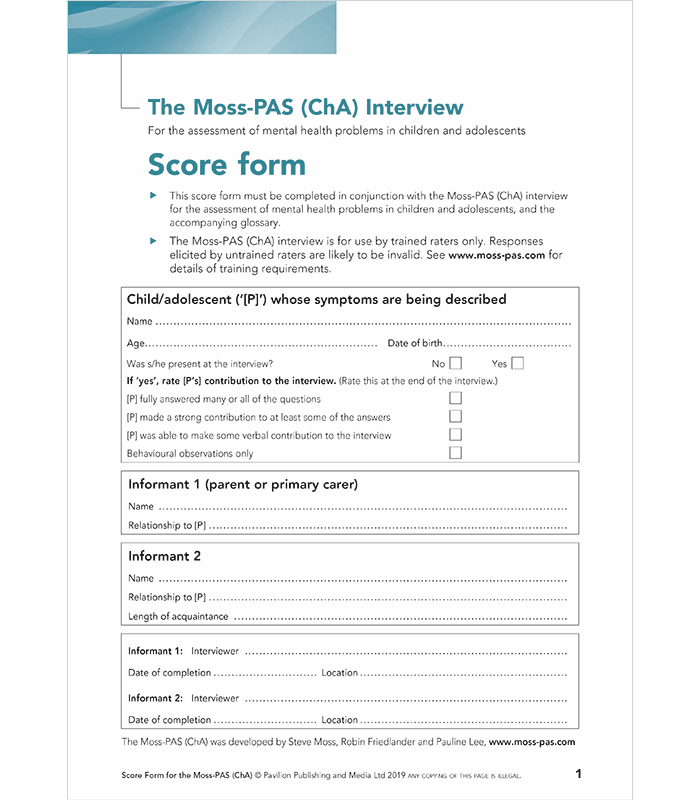
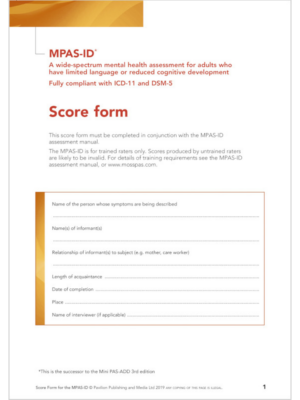
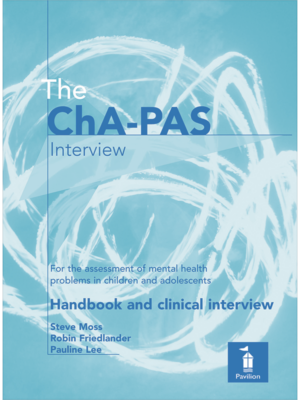
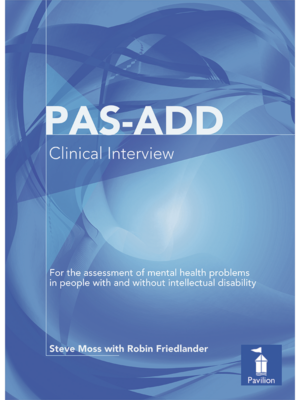
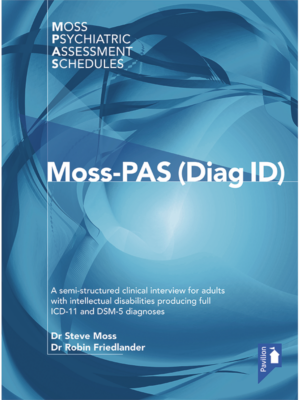
Reviews
There are no reviews yet.